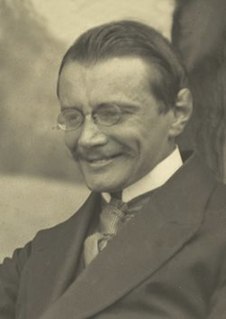A Quote by Markos Moulitsas
The fact is that there's hundreds of thousands of incredibly motivated, active political partisans working on the blogs. These people generate buzz, it generates local activism. These aren't the kind of people that pay attention a little to politics, turn it off and then do something else. They live and breathe politics. And anybody that wants to build a movement or a successful campaign needs people like the people who read blogs.
Quote Topics
Active
Activism
Anybody
Attention
Blogs
Breathe
Build
Buzz
Campaign
Else
Fact
Generate
Hundreds
Hundreds Of Thousands
Incredibly
Kind
Like
Little
Live
Local
Motivated
Movement
Needs
Off
Partisans
Pay
Pay Attention
People
Political
Politics
Read
Something
Something Else
Successful
Then
Thousands
Turn
Wants
Working
Related Quotes
We need to reach the millions who live in cities, the hundreds of thousands in industrial centers, the tens of thousands in medium-sized towns, the thousands in small towns, and the hundreds in villages -- all these at once. Like a volcanic eruption, a spiritual revolution needs to spread through the country, to spur people to crucial decisions. People have to recognize the futility of splitting life up into politics, economics, the humanities, and religion. We must be awakened to a life in which all of these things are completely integrated.
The best benefit that blogs can provide a campaign is actually to build buzz. It provides earned media for the candidates the bloggers are supporting. It generates attention from traditional party organizations, the labor unions. And the issue groups that might not have even known that race existed and not have considered putting money into it now realize, 'OK, this is getting a lot of buzz, we're going to start putting resources into the race.' It motivates a lot of big-dollar donors to put money into these candidates.
Like any young person who gets into a political campaign, I joined out of a highfalutin' desire to change the world. But you start to see the sort of tactics people use. You start to see politics not only in the macro but in the micro of the campaign itself. Some people get turned off by this side of it. Other people are drawn to it.
I had people read it early on and, you know, well-meaning people said to me, you should take out the blogs. I didn't get much positive feedback. Only because most of these people were protective of me - it was sort of like a "tone it down, make it easier to swallow" kind of thing. And I just thought if I do that then it's not the book I want to write.
My idea of what was going on in politics was driven by activism. I came out when I was 17, and right away I started working in the AIDS activist movement. For me, politics was about getting drugs approved and getting prisoners access to the same kind of drugs that you could get on the outside. It was about getting needle exchanges approved. That was politics. These were policy problems that were killing people, and we were trying to get them changed.
You'd hope that no writing about music could supersede the music itself. But I do think that blogs mirror the way that we are listening. It comes at you fast and it's timely and then five minutes later we're on to something else. It caters to our desire for instant gratification. And I think blogs also have fluidity that's exciting. You have a lot of real enthusiastic music fans for the most part that are writing sometimes for a large audience, and I think certain blogs have a little too much power over what someone likes or doesn't like.
I also like to use a sensational headline. Many people read blogs in aggregators, which generally show only the headline. So you have to give people a reason to click through. Blogs need to be real and personal. Reading it should be like hanging out with you. I play music for my readers. I show them videos I like. I tell them what I did over the weekend. And I tell them what is happening in the technology, Internet, and VC markets.
My definition of art has always been the same. It is about freedom of expression, a new way of communication. It is never about exhibiting in museums or about hanging it on the wall. Art should live in the heart of the people. Ordinary people should have the same ability to understand art as anybody else. I don’t think art is elite or mysterious. I don’t think anybody can separate art from politics. The intention to separate art from politics is itself a very political intention.


































